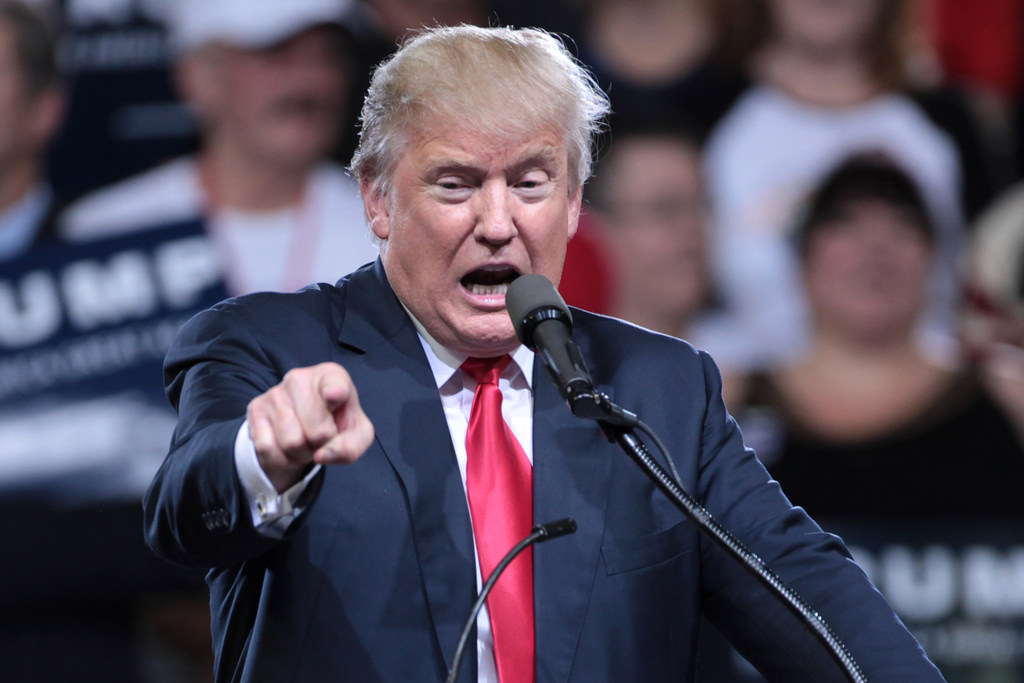It wouldn’t make much sense to sack the fire service during a forest fire, yet that’s effectively what US President Donald Trump has done by suspending funding to the World Health Organization (WHO) in the middle of a pandemic. The WHO is by no means perfect, but undermining the world’s only global public health agency does not serve US interests.
The US is the biggest contributor to the 194-member WHO, providing around US$400 million (£322 million) annually, which makes up about a fifth of the budget. The organisation has been asked to do more with less for decades and is already in a fairly perilous financial situation.
Although the move is characteristically shortsighted, this time Trump’s decision was premeditated. On April 10, he hinted that US funding would be withdrawn, adding: “We’re looking at it very, very closely … we’ll have a lot to say about it.”
The following week he confirmed the suspension of funding and blamed the WHO for “severely mismanaging and covering up the spread of coronavirus”. He argued that the organisation had been too slow to investigate the outbreak and had been complicit in China’s suppression and misreporting of cases.
Was he correct? Well, there is evidence that local officials attempted to cover up the early outbreak, and the WHO director general, Tedros Adhanom Ghebreyesus, has stood by his endorsement of China’s heavy-handed tactics. As with decisions to honour Turkey’s president, Recep Erdogan, and former Zimbabwean ruler Robert Mugabe, Tedros’ stance has been roundly criticised. In his defence, it does seem to stem from a genuine desire to win engagement in order to deliver his mandate of achieving health for all.
Interestingly, President Trump was one of the few world leaders who seemed to agree that China was doing a good job, praising the government’s “hard work and transparency” in January and commending Xi Jinping’s handling of the mounting pandemic in a string of further comments during February.
Trump had two other aims in mind when he pulled the rug from under the WHO’s feet. In the short term, most pundits agree that Trump’s main motivation for cutting WHO funding was to deflect blame from his own bungled handling of COVID-19 on home soil. His approval ratings are at an all-time low and the US now has more cases of coronavirus than any other country.
In the longer term, withdrawing from multilateral partnerships aligns with Trump’s zero-sum worldview. As with Nato, the World Trade Organization and virtually every other international body, Trump feels that the US is getting a bad deal from its WHO contribution. And he bristles at the thought of foreign nations exploiting American generosity.
Former presidents have worked to develop, maintain and promote an Anglophone, dollar-backed international world order built on American values of capitalism, liberalism, democracy, integration and the transparent rule of law. This has fostered an unprecedented era of peace, stability, international cooperation and integration of markets (as well as massive socioeconomic inequality) – projecting American soft power and allowing national firms to enter formerly closed markets.
In Trump’s view, his predecessors were chumps who allowed other countries to abuse American generosity while flouting the rules: from Nato allies shirking their responsibilities to China’s currency manipulation, intellectual property theft and disproportionate access to the WHO.
Yet defunding the WHO is a microcosmic act that illustrates the folly of Trump’s “America first” approach. The sums involved are peanuts to the administration – less than it costs to run a large hospital. Yet the US gets enormous bang for its buck. Its citizens are over-represented among WHO leadership and technical staff, and as a member state, it has never been afraid to use its clout to veto documents and clauses that threaten its commercial interests. The WHO’s irreplaceable work in sharing information and promoting science-based practice also benefits American citizens during the pandemic.
Eastward shift in power
Withdrawing from the international stage also leaves a superpower-sized leadership hole that only China can fill. If Trump wants the WHO to be more effective and less China-centric, then surely the remedy is more US engagement, not less.
Besides expediting the eastward shift of power, the bigger picture is that continued disengagement from lopsided international partnerships will hurt his base more than anyone else. It will lead to higher export tariffs, increasingly expensive imports, higher costs of living – and later on, geopolitical instability and weakened alliances.
World leaders lined up to condemn Trump’s assault on multilateralism, sparking a rare moment of coordination in a pandemic hitherto marked by international fragmentation. Selfish, reckless or misguidedly patriotic – whatever your take on Trump’s castigation, there is no denying that it couldn’t come at a worse time for the fragile states depending on the WHO to guide them through this raging inferno. It seems this move will achieve the exact opposite of everything Trump has intended: a worse deal for ordinary US citizens, a weaker America and an ever more China-centric global order.



 Japan Election 2026: Sanae Takaichi Poised for Landslide Win Despite Record Snowfall
Japan Election 2026: Sanae Takaichi Poised for Landslide Win Despite Record Snowfall  Trump Signs Executive Order Threatening 25% Tariffs on Countries Trading With Iran
Trump Signs Executive Order Threatening 25% Tariffs on Countries Trading With Iran  Gold and Silver Prices Slide as Dollar Strength and Easing Tensions Weigh on Metals
Gold and Silver Prices Slide as Dollar Strength and Easing Tensions Weigh on Metals  Trump Allegedly Sought Airport, Penn Station Renaming in Exchange for Hudson River Tunnel Funding
Trump Allegedly Sought Airport, Penn Station Renaming in Exchange for Hudson River Tunnel Funding  U.S. Stock Futures Slide as Tech Rout Deepens on Amazon Capex Shock
U.S. Stock Futures Slide as Tech Rout Deepens on Amazon Capex Shock  Dow Hits 50,000 as U.S. Stocks Stage Strong Rebound Amid AI Volatility
Dow Hits 50,000 as U.S. Stocks Stage Strong Rebound Amid AI Volatility  Trump’s Inflation Claims Clash With Voters’ Cost-of-Living Reality
Trump’s Inflation Claims Clash With Voters’ Cost-of-Living Reality  Asian Stocks Slip as Tech Rout Deepens, Japan Steadies Ahead of Election
Asian Stocks Slip as Tech Rout Deepens, Japan Steadies Ahead of Election  China Extends Gold Buying Streak as Reserves Surge Despite Volatile Prices
China Extends Gold Buying Streak as Reserves Surge Despite Volatile Prices  Trump Signs “America First Arms Transfer Strategy” to Prioritize U.S. Weapons Sales
Trump Signs “America First Arms Transfer Strategy” to Prioritize U.S. Weapons Sales  Trump Says “Very Good Talks” Underway on Russia-Ukraine War as Peace Efforts Continue
Trump Says “Very Good Talks” Underway on Russia-Ukraine War as Peace Efforts Continue  Silver Prices Plunge in Asian Trade as Dollar Strength Triggers Fresh Precious Metals Sell-Off
Silver Prices Plunge in Asian Trade as Dollar Strength Triggers Fresh Precious Metals Sell-Off  U.S. Announces Additional $6 Million in Humanitarian Aid to Cuba Amid Oil Sanctions and Fuel Shortages
U.S. Announces Additional $6 Million in Humanitarian Aid to Cuba Amid Oil Sanctions and Fuel Shortages  Trump Lifts 25% Tariff on Indian Goods in Strategic U.S.–India Trade and Energy Deal
Trump Lifts 25% Tariff on Indian Goods in Strategic U.S.–India Trade and Energy Deal  U.S. Lawmakers to Review Unredacted Jeffrey Epstein DOJ Files Starting Monday
U.S. Lawmakers to Review Unredacted Jeffrey Epstein DOJ Files Starting Monday  South Korea Assures U.S. on Trade Deal Commitments Amid Tariff Concerns
South Korea Assures U.S. on Trade Deal Commitments Amid Tariff Concerns  China Warns US Arms Sales to Taiwan Could Disrupt Trump’s Planned Visit
China Warns US Arms Sales to Taiwan Could Disrupt Trump’s Planned Visit 

































